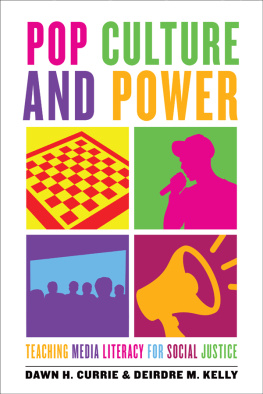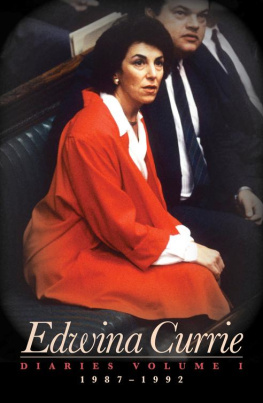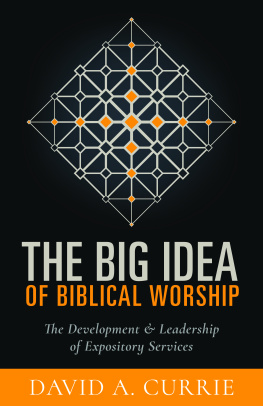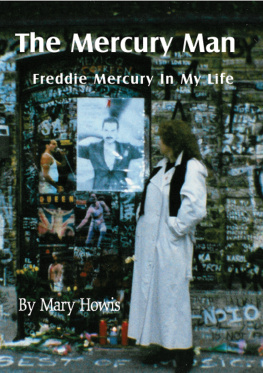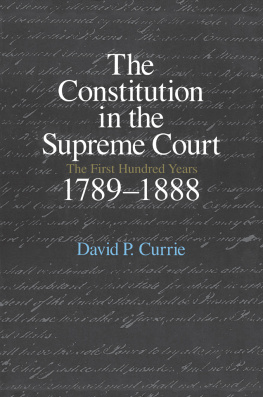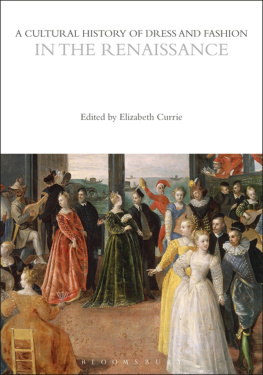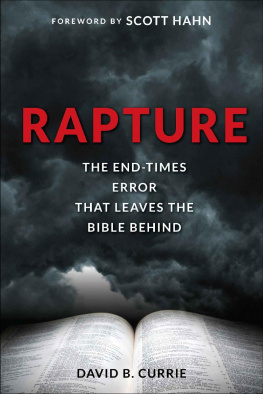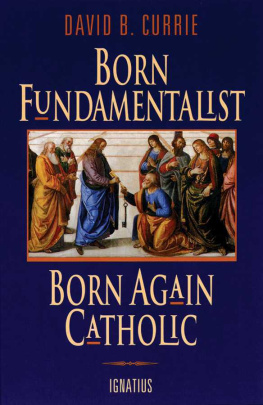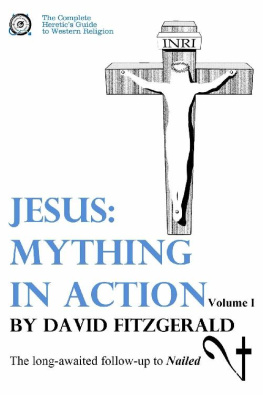David B Currie - What Jesus Really Said About the End of the World
Here you can read online David B Currie - What Jesus Really Said About the End of the World full text of the book (entire story) in english for free. Download pdf and epub, get meaning, cover and reviews about this ebook. year: 2012, publisher: Catholic Answers, genre: Religion. Description of the work, (preface) as well as reviews are available. Best literature library LitArk.com created for fans of good reading and offers a wide selection of genres:
Romance novel
Science fiction
Adventure
Detective
Science
History
Home and family
Prose
Art
Politics
Computer
Non-fiction
Religion
Business
Children
Humor
Choose a favorite category and find really read worthwhile books. Enjoy immersion in the world of imagination, feel the emotions of the characters or learn something new for yourself, make an fascinating discovery.

- Book:What Jesus Really Said About the End of the World
- Author:
- Publisher:Catholic Answers
- Genre:
- Year:2012
- Rating:4 / 5
- Favourites:Add to favourites
- Your mark:
- 80
- 1
- 2
- 3
- 4
- 5
What Jesus Really Said About the End of the World: summary, description and annotation
We offer to read an annotation, description, summary or preface (depends on what the author of the book "What Jesus Really Said About the End of the World" wrote himself). If you haven't found the necessary information about the book — write in the comments, we will try to find it.
What Jesus Really Said About the End of the World — read online for free the complete book (whole text) full work
Below is the text of the book, divided by pages. System saving the place of the last page read, allows you to conveniently read the book "What Jesus Really Said About the End of the World" online for free, without having to search again every time where you left off. Put a bookmark, and you can go to the page where you finished reading at any time.
Font size:
Interval:
Bookmark:

What Jesus Really Said About the End of the World
David B. Currie
What Jesus Really Said About the End of the World
C ATHOLIC
A NSWERS
PRESS
San Diego
2012
What Jesus Really Said About the End of the World
2012 by David B. Currie
All rights reserved. Except for quotations, no part of this book may be reproduced or transmitted in any form or by any means, electronic or mechanical, including photocopying, recording, uploading to the Internet, or by any information storage and retrieval system, without written permission from the publisher.
Unless otherwise noted, biblical citations are taken from the Revised Standard Version of the Bible
( 1971 by Division of Christian Education of the National Council of the Churches of Christ in the United States of America).
Published by Catholic Answers, Inc.
2020 Gillespie Way
El Cajon, California 92020
1-888-291-8000 orders
619-387-0042 fax
catholic.com
Cover design by Devin Schadt
Interior design by Russell Design
Printed in the United States of America
ISBN 978-1-938983-11-5
All italics added for emphasis in citations from Scripture and ancient texts are the authors.
To the next generation: Elizabetta, John, Adelina, Mark, and Michael.
I wish to acknowledge the support of my family, particularly for their patience during the hours of writing: Colleen, Mary, Daniel, Elisabeth, Alison, Bradley, Stephen, Benjamin, Stephanie, Matthew, Ann, Jonathan, and Kathleen.
I am also indebted to Swantina, Simon, and Todd for their invaluable assistance on the manuscript.
To be persuasive we must be believable; to be believable we must be credible; to be credible we must be truthful.
Edward R. Murrow
We do not err because truth is difficult to see. It is visible at a glance. We err because this is more comfortable.
Alexander Solzhenitsyn
The diligent reading of Sacred Scripture accompanied by prayer brings about that intimate dialogue in which the person reading hears God who is speaking, and in praying, responds to him with trusting openness of heart. If it is effectively promoted, this practice will bring to the ChurchI am convinced of ita new spiritual springtime.
Pope Benedict XVI
One
This Generation Will Not Pass: Jesus Big Mistake?
The college student across the table was only a freshman, but she certainly knew her own mind. Her parents had paid for twelve years of Catholic education, and now she had matriculated at a major Catholic university. Yet there she sat, doggedly attempting to convince those of us at the dining hall table that abortion and contraception were perfectly acceptable choices, even for a serious Catholic. She knew her position contradicted the teachings of Christs Church. But she didnt think it mattered.
Why? She had been taught in her Catholic high school religion class that the early Church was wrong about the end of the world; in fact, that Jesus himself was the source of the mistake. She had been taught that Jesus believed he would return in glory within a generation of his own time and that his disciples had shared this false hope. Since Jesus had been mistaken about the end of the world, she reasoned, both he and his Church could just as easily be mistaken about other things.
I wish I could say that this true story is an isolated case. It is not. In fact, I am willing to wager that most Catholics have encountered the claim that caused this young student to question her faiththe claim that Jesus and the early Church fully expected his Second Coming within a very short period of time. Maybe you have heard it in a homily or in an RCIA class. Perhaps you have listened to a catechist teach that St. Paul, too, mistakenly predicted an imminent Second Coming and that his flawed eschatology calls into question the authority of his other teachings.
Such ideas have been around for centuriesreaching critical mass during the Enlightenmentbut we dont have to look very far into the past to find prominent popularizers, Christian and skeptic alike, of the scandalous notion that Jesus was just plain wrong about his Second Coming.
Bertrand Russell
The first on our list, Bertrand Russell, was one of the leading logicians and mathematicians of the twentieth century, as well as one of its most notorious atheists. In his 1927 essay Why I am Not a Christian , Russell laid out his case for rejecting Christianity, which included the claim that Jesus had predicted the end of the world within a generation:
(Jesus) certainly thought that His second coming would occur in clouds of glory before the death of all the people who were living at that time. There are a great many texts that prove that.... He believed that His second coming would happen during the lifetime of many then living. That was the belief of His earlier followers, and it was the basis of a good deal of His moral teaching .
Notice that Russelljust like our young college studentlinked Jesus moral authority to his misguided end-of-the-world teaching. His argument can be summarized thusly:
1.Jesus claimed to be divine and that he would gloriously return at the end of the world within a generation.
2.On that basis, Jesus made moral demands upon his followers.
3.Jesus lived in the first third of the first century; the world did not end by the close of the first century, so Jesus was wrong.
4.Therefore, Jesus could not be divine as claimed. Either he was a fraud or his followers perpetrated a hoax.
5.Therefore, his moral teachings are not infallible either. We can pick and choose from his moral teachings as we see fit.
On the surface, this argument sounds logical. For a Christian, it creates a conundrum. Can we agree with Russells basic analysis and keep our faith? Can we affirm Christs divinity yet admit he was fallible? Can we hold to the moral teaching of Jesus while admitting he was wrong on certain facts? Do we even want to?
Christian thinkers have strained themselves to answer these questions in the affirmative. Their two main approaches can be summed up in the writings of two other well-known modern figures.
Albert Schweitzer
This influential Lutheran minister-missionary-musician-philosopher-physician was a contemporary of Russells. Like Russell, he believed that Jesus had predicted his own Second Coming within a generation. Schweitzer also wrote that the leaders of the early Church, too, wrongly believed Christ would return in the final eschaton before they died.
So what did Schweitzer conclude? That the Jesus of the Bible was a fabrication:
The Jesus of Nazareth who came forward publicly as the Messiah, who preached the ethic of the kingdom of God, who founded the kingdom of heaven upon earth and died to give his work its final consecration, never existed.
Schweitzer was an exemplar and a forerunner of liberal Protestantism. He wished to remain a Christian in some sense while rejecting the historical understanding of that word. But more traditional Christians, intent on holding to the truths about Jesus revealed in Scripture and passed down through history, have also wrestled with the apparent problem of Jesus unfulfilled predictions.
C.S. Lewis
Perhaps the most famous such example was the twentieth-century Anglican apologist C.S. Lewis, whom most would consider to be an example of orthodox, conservative Protestantism. He did not agree often with Russell and Schweitzer, but on this one thing they were in accord: Jesus was wrong about the end of the world.
But Lewis believed that, despite this mistake, Jesus was still divine and his moral teachings are binding. In fact, Lewis defended Christianity more effectively than almost anyone else of his century. Yet he had a problem. Of Matthew 24:34 he wrote, It is certainly the most embarrassing verse in the Bible. Why? Because in it, Lewis believed, Jesus had predicted a quick end to the world:
Font size:
Interval:
Bookmark:
Similar books «What Jesus Really Said About the End of the World»
Look at similar books to What Jesus Really Said About the End of the World. We have selected literature similar in name and meaning in the hope of providing readers with more options to find new, interesting, not yet read works.
Discussion, reviews of the book What Jesus Really Said About the End of the World and just readers' own opinions. Leave your comments, write what you think about the work, its meaning or the main characters. Specify what exactly you liked and what you didn't like, and why you think so.

